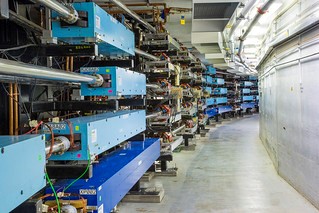Accelerator Research and Development

The Office of Nuclear Physics (NP) supports cutting-edge accelerator research and development for the programmatic needs of its current and planned facilities. In the process, transformative technological advances and core competencies in accelerator science that are developed by NP are also often relevant to other applications and other SC programs. For example, superconducting radio frequency (SRF) particle acceleration developed for NP programmatic missions has contributed to technological advances for a broad range of applications including materials research, cancer therapy, food safety, bio-threat mitigation, national defense, waste treatment, and commercial fabrication.
The Accelerator Research and Development activity supports a broad range of activities aimed at research and development related to the science, engineering, and technology for accelerators of electrons, protons and heavy ions. Research and development activities are supported that will advance fundamental accelerator technology and its applications to nuclear physics scientific research. Areas of interest include the development of transformative accelerator technologies for the Electron-Ion Collider (EIC); linear accelerators such as the Continuous Electron Beam Accelerator Facility (CEBAF) at the Thomas Jefferson National Accelerator Facility (TJNAF); and development of devices and methods that are useful in the generation of intense rare isotope beams at the Facility for Rare Isotope Beams (FRIB). A major focus of the above areas is the accelerators and its related technologies. Also of importance is development of next generation high intensity ion sources and polarized electron sources to realize the full potential of NP facilities, including FRIB and the future EIC.




